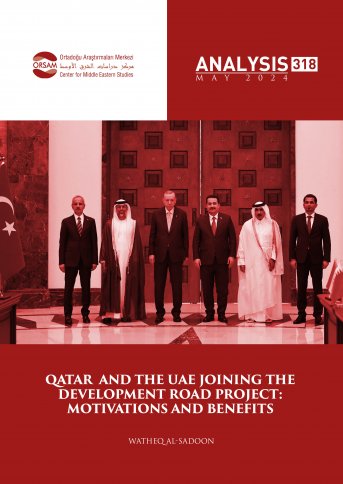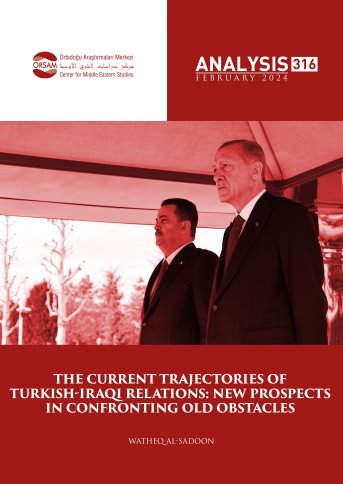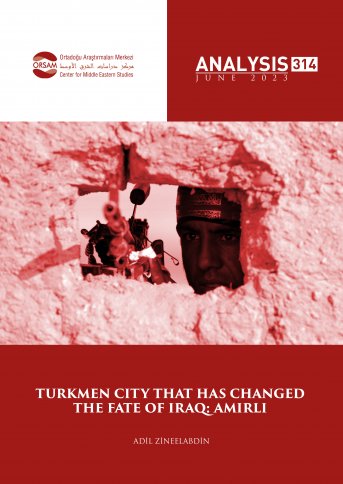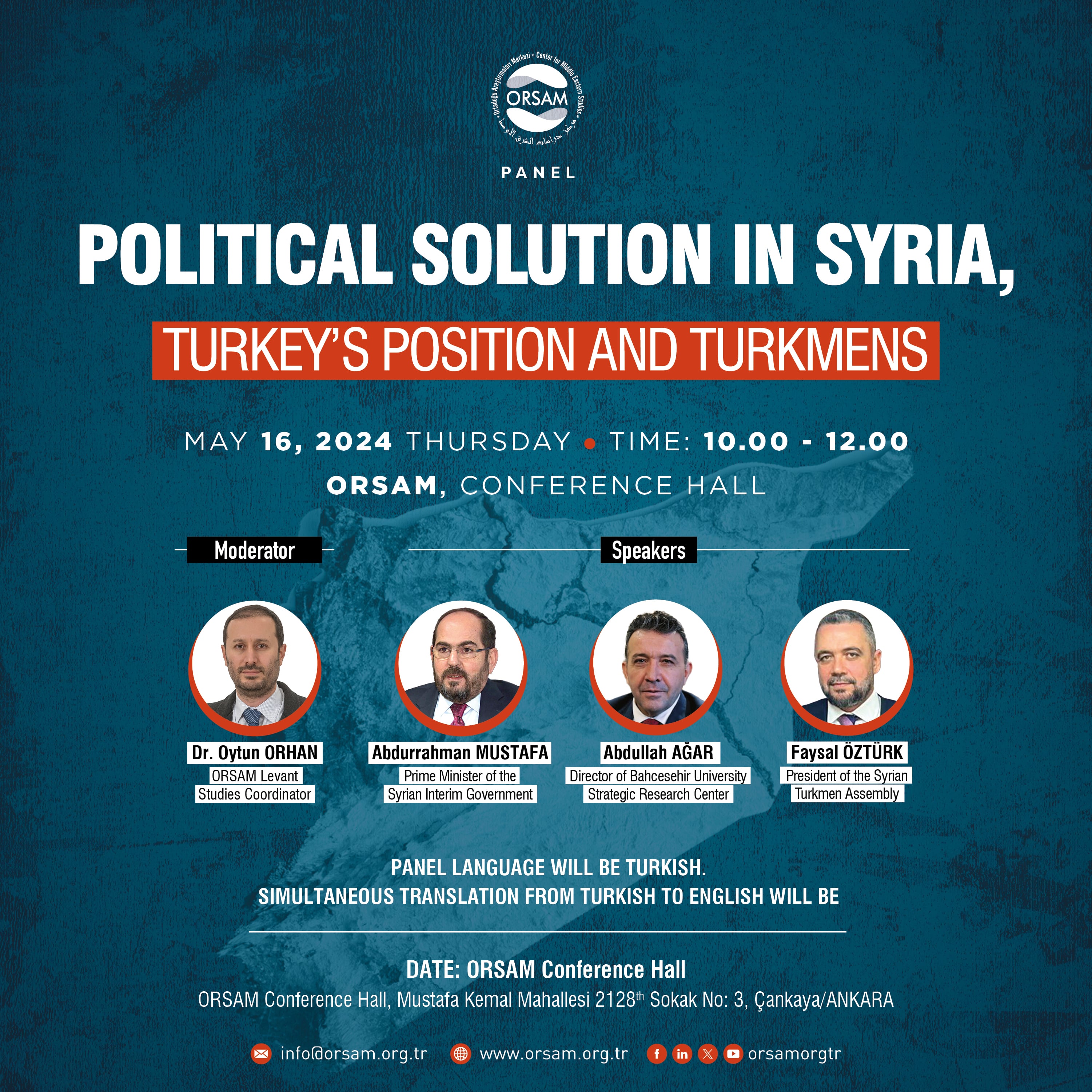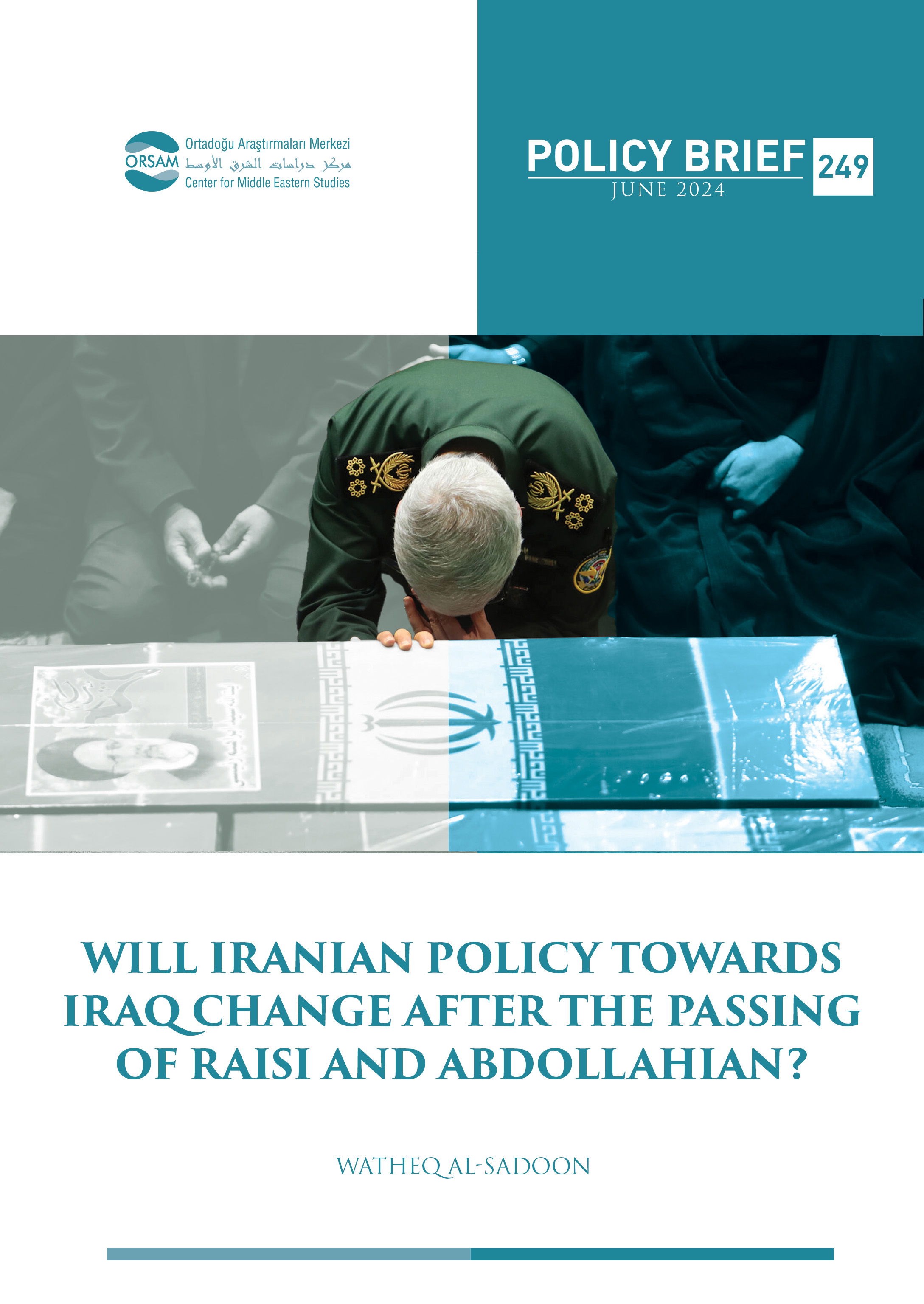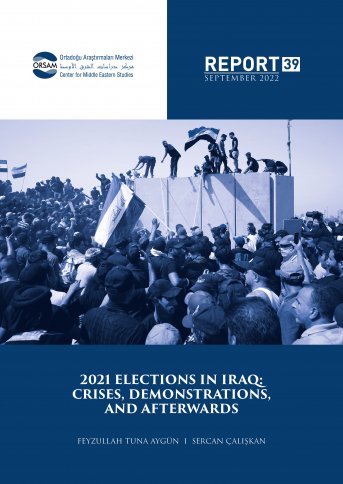
Report
2021 Elections in Iraq: Crises, Demonstrations, and Afterwards
The US invasion in 2003 and the subsequent removal of the regime from power fundamentally affected Iraq and its society. In this context, the new government system established in the country was handed over to the Iraqis after 2005. However, the social change that started with the rift in 2003 continues to affect Iraqis who do not remember the Baath period (1968-2003). The change in the country caused the groups that existed outside the power hierarchy in the Baath period and the opposition to become the dominant and playmaker actors of the post-2003 era. Revanchist policies were put into practice after these groups gained power after 2003. It goes so far as some political groups imposing such policies upon others who share the same identity. Yet, the most violent practices were inflicted upon the “others.” Therefore, the effect of the rift between the religious, sectarian, and ethnic groups, which constitute the fault lines of the country, has increased.
In this context, as stated in the Iraqi National Security Strategy Document, the lack of a common national identity has led to the conduct of politics over ethnic and sectarian identities. In fact, in the following period, the National Iraqi Alliance was established in 2005, which initially included all Iraqi Shiites, yet a rivalry emerged within the Shiites as some groups left in the following elections. Iraqi Sunnis and Kurds experienced a similar situation. The divided political formations have now transformed to appeal to the lower breakdown of group interests, and the "discrepancy” between the demands of society and the supply provided by the political mechanism has caused a new dynamic in the country.
In this context, the anti-government demonstrations that started on 1 October 2019 caused a Prime Minister to resign before completing his term for the first time in Iraqi politics. It is even possible to argue that Iraq and its politics are divided into two as “pre-October" and "post-October” due to the impact of the demonstrations on politics. In addition, the demonstrations were named the "October Revolution" as they affected the country to a great extent. In this context, after the resignation of Adel Abdul-Mahdi, who was the Prime Minister in charge of reconciling different parliamentary groups after the ruptures in politics, there was a Prime Ministerial crisis in Iraq. After the unsuccessful attempts of Muhammed Tawfiq al-Allawi and Adnan al-Zurfi, the crisis ended when Mustafa al-Kadhimi, Head of the Iraqi Intelligence Service, received a vote of confidence and formed the government.
Due to the dynamics caused by the demonstrations, Prime Minister al-Kadhimi's government program included early elections with the enactment of a new election law. In fact, al-Kadhimi introduced his government as "the government that will carry Iraq to early elections" in order to maintain the support of the demonstrators. Therefore, the negotiations on the new election law draft, which started in the Iraqi Parliament before al-Kadhimi, continued. The Parliament passed the bill, which was then approved by Iraqi President Barham Salih on November 5, 2020, and came into effect after being published in the Official Gazette of Iraq on November 9, 2020. After the election law came into effect, the election date was determined as June 6, 2021, in line with the election calendar. However, upon the Iraqi Independent High Election Commissioner’s (IHEC) request for more time to complete the preparations, the Council of Ministers set a new date of October 10, 2021.
The candidacy processes came to an end as the election calendar approached. Accordingly, after the examination of parliamentary candidacy by the IHEC, a total of 3.249 candidates, including 951 women and 789 independent candidates, were accepted. However, IHEC announced that some political parties and candidates who wanted to withdraw from the elections would keep their names on the list because they submitted their requests outside of the valid period. In other words, candidates and parties who declared that they wanted to withdraw from the elections were not allowed to do so on the grounds that the candidate lists were finalized. This situation paved the way for the political parties that declared that they would boycott the elections to be used as a political maneuver. The Sadr Movement acted in accordance and announced that it would boycott the elections, but then participated in the elections. Although the removal of the Sadr Movement from the ballot paper would prevent it from participating in the elections, its preservation on the ballot allowed it to expand its political maneuvering space.
At this point, the parties calling for a boycott, apart from the Sadr Movement, also took part in the boycott call after the murder of one of the demonstrators' leaders on the street, Ihab al-Wazni. This situation has also revealed a rift between the parties. The demonstrators, who found the boycott calls unjustified, continued to support the political groups they created. The demands of these demonstrators, who have complaints about the Iraqi political system, are as follows:
- Fair and enforceable election law,
- Establishment of an independent and impartial election commission,
- Implementation of the Political Parties Law,
- Ensuring a fair election environment,
- Trial of those responsible for the protesters' deaths,
- Accountability of corrupt politicians and
- The collection of weapons outside of state control.
Despite many new internal and external developments in Iraqi politics, Iraq's sixth parliamentary elections were held on 10 October 2021. However, these pre-election developments are extremely important since they are closely related to the post-election process. The basic dynamics in the post-election period that formed the alliances and opposing groups were shaped in the pre-election period. Therefore, before moving on to the post-election process, it would be useful to examine the process that led to the early elections in Iraq.

